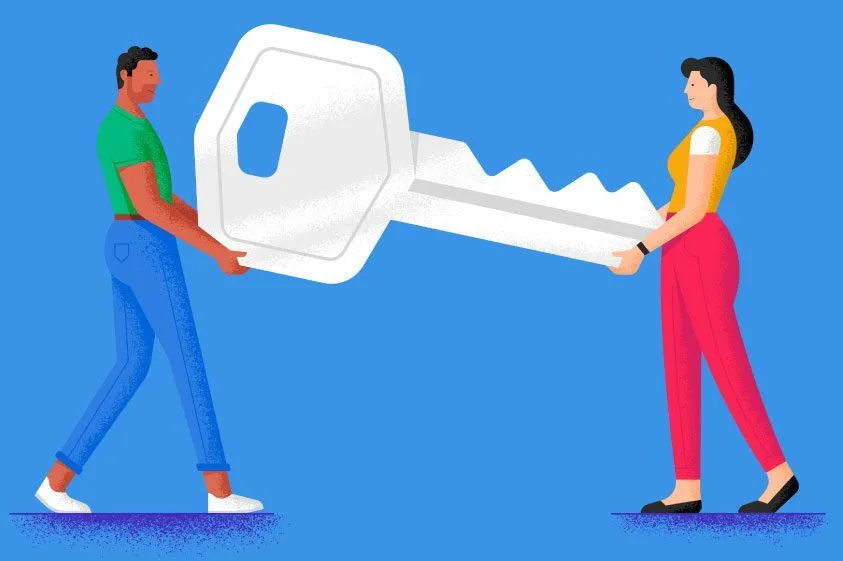
Importance of Good Move Conveyancing
In the fast-paced world of real estate, a smooth move is the ultimate goal for both buyers and sellers. Achieving this involves a crucial process known as conveyancing. In this article, we will delve into the intricacies of good move conveyancing and why it plays a pivotal role in ensuring a successful and hassle-free property transaction.
Moving to a new home can be both exciting and daunting. The last thing you want is for legal issues to complicate the process. This is where good move conveyancing comes into play.
What is Conveyancing?
Conveyancing is the legal process of transferring property ownership from one party to another. It involves a series of steps, including property searches, document preparation, and contract exchange.
The Role of Conveyancers
Conveyancers are licensed professionals who specialize in property law. They act as intermediaries between buyers and sellers, ensuring that the transaction adheres to all legal requirements.
Why Is Good Move Conveyancing Essential?
Ensuring Legal Compliance
One of the primary reasons for good move conveyancing is to ensure that the property transaction complies with all relevant laws and regulations. Conveyancers are well-versed in local property laws and can navigate complex legal issues.
Protecting Your Interests
Your conveyancer is your advocate throughout the process. They review contracts, negotiate on your behalf, and make sure your interests are protected at every turn.
Managing Complex Paperwork
Property transactions involve a significant amount of paperwork. Conveyancers handle this paperwork with precision, reducing the risk of errors that could delay the process.
The Conveyancing Process: Step by Step
Pre-Contract Stage
This stage involves property searches, including title searches, zoning, and land registry checks. It ensures that there are no outstanding issues that could affect the property’s sale.
Contract Stage
During this stage, the sale contract is prepared, and negotiations take place. Your conveyancer will make sure that all terms and conditions are fair and favorable to you.
Post-Contract Stage
Once the contract is signed, the conveyancer continues to work diligently. They handle the exchange of contracts, mortgage arrangements, and the transfer of funds.
Choosing the Right Conveyancer
Selecting the right conveyancer is crucial. Look for experience, reputation, and a commitment to communication. A good conveyancer will keep you informed every step of the way.
Common Pitfalls to Avoid
There are several common pitfalls in the conveyancing process, such as incomplete paperwork, delays, and disputes. Your conveyancer’s expertise can help you navigate these challenges.
Benefits of a Smooth Move
A successful and smooth move means less stress for everyone involved. It allows you to focus on settling into your new home without the worry of legal complications.
Tips for a Stress-Free Conveyancing Experience
1. Start early and plan ahead.
2. Communicate openly with your conveyancer.
3. Stay organized with your paperwork.
4. Be prepared for unexpected delays.
5. Trust your conveyancer’s expertise.
In the world of real estate, a smooth move is the ultimate goal. Good move conveyancing is the key to achieving this goal. By entrusting your property transaction to a qualified conveyancer, you can ensure that your move is not only smooth but also legally sound.
FAQs
1. **Do I need a conveyancer for every property transaction?**
– While it’s not legally required, it’s highly recommended to hire a conveyancer for any property transaction to protect your interests.
2. **How long does the conveyancing process usually take?**
– The duration can vary, but on average, it takes between 4 to 12 weeks from the acceptance of an offer to completion (settlement).
3. **What are the typical fees associated with conveyancing?**
– Conveyancing fees can vary, but they usually include the conveyancer’s professional fee, disbursements, and government charges.
4. **Can I use the same conveyancer for buying and selling a property?**
– Yes, you can use the same conveyancer for both buying and selling, which may streamline the process.
5. **What happens if there are issues discovered during property searches?**
– Your conveyancer will work with you to address any issues, which may involve renegotiating the terms of the contract or, in rare cases, withdrawing from the transaction.
This is general advice only, for specific legal advice speak with your legal representative.




